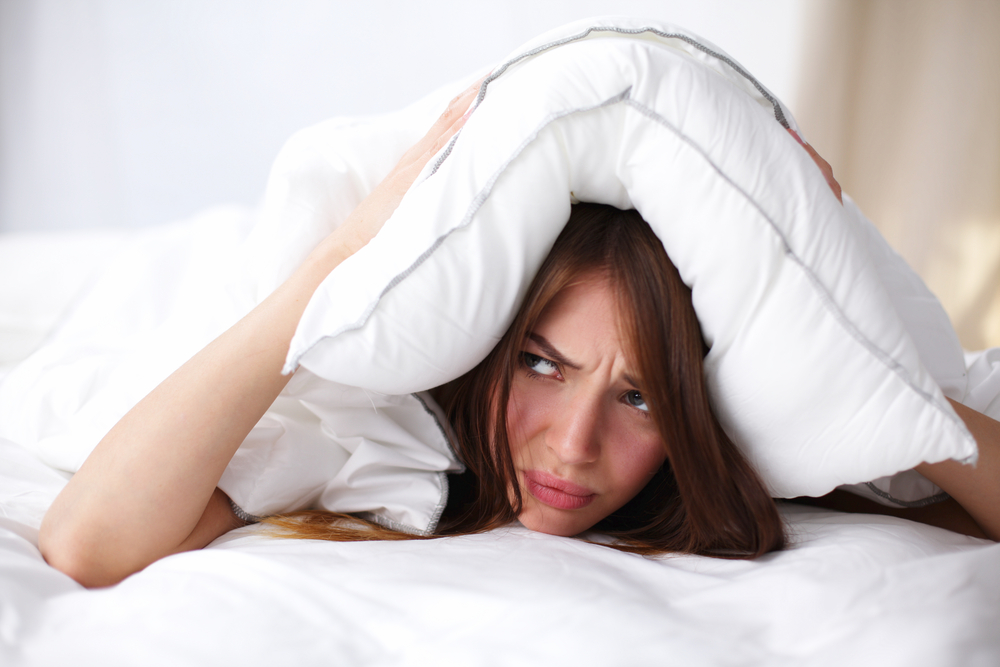Sleep Tight, CF Community
Written by |

Life has a way of changing plans and allowing others to help you embrace a new path.
Before I sat down to write this column, I went to my favorite coffee shop to get an iced vanilla latte. I enjoy the small moments with my baristas, and I’m always open to their conversations and bits of wisdom. I told my friend what I was up to today: sitting down to actually write this column.
You should write about sleep schedules and how they affect — what is it you have again?
It’s funny that my friend asked that, as I actually grew up to the sound of my dad harping on the importance of sleep. He would go as far as making everyone leave the house if any of his three kids or his wife had a bad night’s rest. I would scoff at my dad anytime he overly annunciated, “Get. Yur. Slee-uhp.” And when I say scoff, I think I was more worried that I couldn’t keep up with everyone else because my disease wore out my body so much.
Until recently, I hadn’t realized how right my dad was. I can’t underestimate how sleep affects my cystic fibrosis, or how my cystic fibrosis affects my sleep schedules. My mental health is the coordinating act behind my sleep, and it takes the biggest plunge when I don’t sleep. Or when I sleep too much. So, when my friend mentioned sleep schedules, I immediately remembered three important phases of my life when I deteriorated more quickly because of sleep issues.
In college, my sleep waxed and waned. I had a relatively quintessential college experience. I would pull all-nighters to attempt to understand international political theory and flesh out my thesis. Or, I had all-nighters of the variety that involves too much tequila. Either way it came at me, I would push through, and a voice in my head always reiterated that CF couldn’t control this aspect of my life. Look how I’m able to balance my life, I would tell myself.
Discuss the latest research in the Cystic Fibrosis News Today forums!
But when I look back on those days, I not only marvel at how restless I was but also at how it took me days to recuperate from those nights. This was unlike my friends, who could easily and gracefully bounce back to life.
On those nights, I chose to forego sleep. While I now think that was a dumb idea, I’m glad I let myself have those experiences, which were fun and full of camaraderie with friends and classmates. But there is a flip side of helplessness that accompanies the sleepless nights alone and sick, or of the misery that follows oversleeping due to depression. There is massive contrast between the two, although they both cause shame and profoundly impact my body.
In my early 20s, I developed an autoimmune disorder called Henoch-Schonlein purpura, or HSP. My experience with HSP laughs at anything CF has put me through. I was 20 years old, my body was covered in rashes, and anywhere a capillary was located, it was inflamed. I was on a Dilaudid (hydromorphone hydrochloride) pump to manage the severe pain that my body was inflicting on me, and any concept of self was distorted by the massive amounts of IV steroids streaming through my body.
In the past, because I was so sick and helpless, sleep was an escape and a way to heal. But in an ironic twist, I couldn’t sleep with HSP. For weeks, I desperately wanted to rest normally to escape the living hell and the confusion that surrounded me. I wanted a break. But my dreams were the threshold to a reality that was less certain and more terrifying than the pain I was in. Delusions surrounded me when I was apparently sleeping.
Fast -forward a few years, and I found myself in a predicament in which all I did was sleep to escape my reality. Sleep was a coping mechanism — albeit a poor one — for the severe depression I had spiraled into. At the risk of sounding dramatic, I would wake up upset by my existence and think, “I prefer being in my dreams because they’re better than my waking reality.” I was hurting deeply, and my health was taking a serious nosedive because of my depression and all the time I spent immobile.
So, how does my sleep schedule affect my — what is it called again — cystic fibrosis? Sleep is absolutely necessary to maintain my health and to heal, and it’s the foundation I build my day on. My sleep also suffers immensely when I’m sick, either from CF or something more nefarious. Sometimes I need more than the recommended eight hours, and that’s OK. At other times, I sleep way beyond that, and it’s a reflection of something going wrong in my headspace.
***
Note: Cystic Fibrosis News Today is strictly a news and information website about the disease. It does not provide medical advice, diagnosis, or treatment. This content is not intended to be a substitute for professional medical advice, diagnosis, or treatment. Always seek the advice of your physician or other qualified health provider with any questions you may have regarding a medical condition. Never disregard professional medical advice or delay in seeking it because of something you have read on this website. The opinions expressed in this column are not those of Cystic Fibrosis News Today, or its parent company, Bionews Services, and are intended to spark discussion about issues pertaining to cystic fibrosis.







Leave a comment
Fill in the required fields to post. Your email address will not be published.